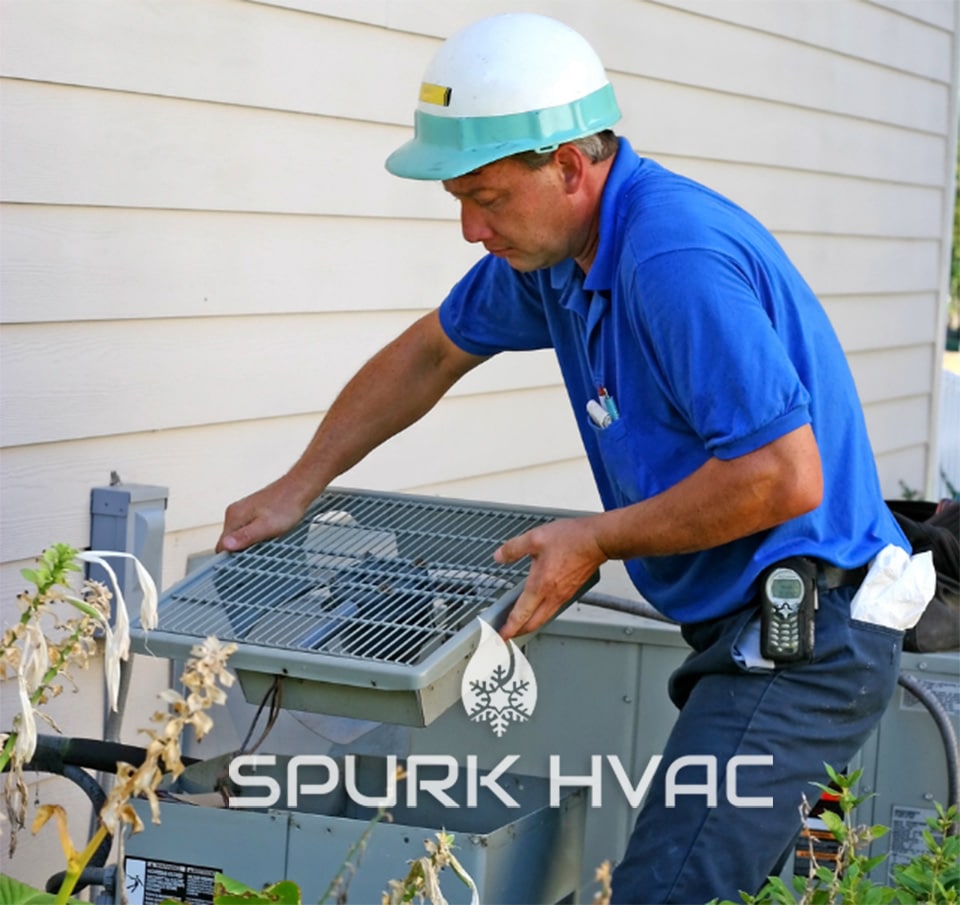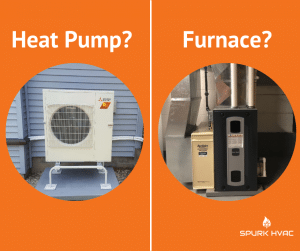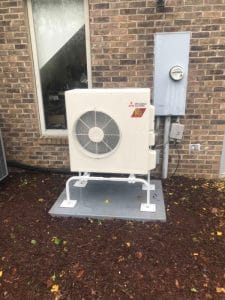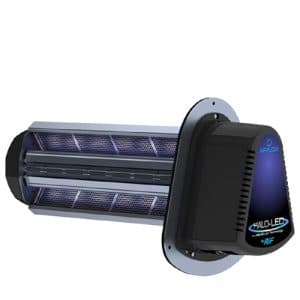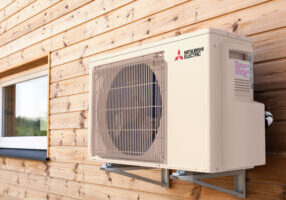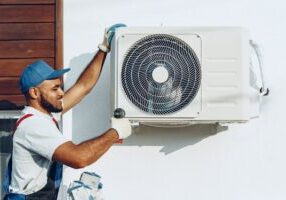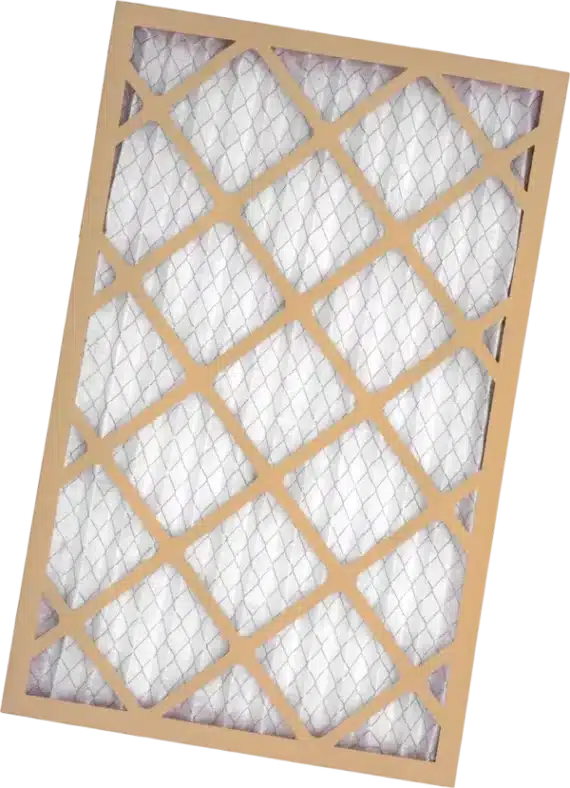Heat pumps and furnaces heat your home – but in very different ways. Find out how and which system may be right for you.
When it comes to heating your home – you have choices! Unless you’re a seasoned pro, understanding how to choose the right heating system can feel overwhelming. Don’t worry, here’s what you need to know to make the right choice.
WHAT IS A HEAT PUMP?
A heat pump, as part of a central heating and cooling system, uses the outside air to heat a home in winter and cool it in summer. Basically, that means your heat pump will act as an air conditioner when things get hot and a heater when it’s cold outside – making heat pumps one versatile product. In addition to its flexibility, heat pumps are also energy-efficient. Think of a heat pump as a heat transporter constantly moving warm air from one place to another, to where it’s needed or not needed, depending on the season. In the winter, the pump extracts heat from the outdoor air or ground and distributes it to your home. In the summer, hot air from inside your home is removed – creating a cooler indoor environment.
WHAT IS A FURNACE?
A furnace, as part of a central heating and cooling system, converts fuel into cozy heat that’s then delivered throughout your home. All furnaces consist of four main components: 1) burners that deliver and burn fuel, 2) heat exchangers, 3) a blower and 4) a flue that acts as an exhaust for gaseous by-products. Depending on your situation, region, and needs, you can choose from heating systems running on either gas or oil as fuel.
WHAT IS A DUAL FUEL (Hybrid) SYSTEM?
Dual fuel systems (AKA Hybrid Systems) blend the best features of a gas furnace together with a heat pump. A dual fuel system includes both a heat pump and a gas furnace and will operate the heat pump during milder temperatures when the heat pump is more efficient, and as the outdoor temperature gets colder the system will automatically switch over to the gas furnace. Not only does this give you, the homeowner, the best available comfort, but it switches back and forth between the heat pump and gas furnace depending on which is most efficient, saving you most amount of money.
INSTALLATION COST
The overall installation cost of your furnace, heat pump, or dual fuel system depends heavily on your home’s compatibility and current system setup. For instance, some homes may not have access to natural gas, making an air conditioner and furnace installation a more expensive alternative to a heat pump system. Alternatively, homes that are not wired for the supplemental heating associated with a heat pump system may incur additional costs. We’d be happy to act as a resource for determining which system(s) are best for your home and can help further explain these installation costs. Schedule your free consultation today.
ENERGY EFFICIENCY
Under ideal conditions, a heat pump can transfer more energy than it consumes. In contrast, a high-efficiency gas furnace is about 95 percent efficient. Heat pumps are powered by electricity, so you can save substantially on fuel consumption. It can easily pay for itself during more temperate years in the Greater Pittsburgh Region.
AIR QUALITY
The same Indoor Air Quality (IAQ) considerations can be made for both your heat pump or gas furnace system. Products such as a whole-home air cleaner or fresh air ventilator are great options when it comes to maximizing your home’s air quality!
COLD WEATHER EFFECTIVENESS
A gas furnace burns fuel so it can generate heat on the coldest days. If the outside air temperature routinely falls below freezing, a heat pump may have a hard time generating enough heat to keep your home warm. Supplemental systems are available to work in tandem with your heat pump and kick in on the coldest days. Unfortunately, these systems use a lot of energy – canceling out the energy-efficient benefits if used too often. A dual fuel system can handle both mild and below-freezing temperatures, switching between heat sources depending on the outdoor temperature and home heating needs.
COMFORT
In general, the air from a heat pump isn’t as hot as what you get from a gas furnace. It’s still warming your home, but it “blows cooler.” Some people don’t like that. In contrast to the hot and dry air of a furnace, heat pumps circulate air that’s naturally humid – so they won’t dry out your skin as much as the heat of a furnace.
LIFESPAN AND MAINTENANCE
A gas-fired furnace generally has a longer lifespan than a heat pump. Furnaces with proper maintenance can last 20 years or more. A heat pump, like an air conditioner, more commonly has a lifespan of 15 years. Since the heating elements of a gas-operated furnace are only used for a few months out of each year, the maintenance requirements are less than those for a heat pump. A gas-fired furnace also has fewer mechanical parts than a heat pump, meaning fewer things that can break down or malfunction.
WHERE YOU LIVE MATTERS
Understanding that every home and homeowner need is different, there are some general recommendations that can help you decide what heating source is right for you.
A heat pump may be right for you if you live in a mild climate.
If your winters average around 30-40 degrees F, heat pumps could be the perfect fit for your home. A climate like the Southeast that has milder winters works well for a heat pump. In addition, locations with low electric rates are prime candidates for heat pumps.
A furnace may be right for you if you live in a cold climate.
If your winters are bitterly cold and have temperatures consistently below freezing a furnace may be the best choice for you. Furnaces fare better in cold-weather climates because they don’t depend on the outdoor temperatures to convert to heat.
DUAL FUEL COMBINES THE BEST OF BOTH SYSTEMS.
Dual fuel is a great choice in areas that see either mild or extreme winters. Dual fuel systems select the best heating option, either heat pump or furnace, based on your heating need, making them a great fit no matter the weather.
About Spurk HVAC
Spurk HVAC was formed in 2018 and is located in Warrendale, Pennsylvania. We proudly serve Cranberry Twp., Wexford, Gibsonia, Mars, and the surrounding areas. We are an American Standard Customer Care Dealer and a Mitsubishi Diamond Contractor.
We service all makes and models. Please contact us if you are seeking a heating repair, heating system replacement, air conditioner repair, air conditioning maintenance, air conditioning replacement, or any other heating & cooling services. Whether you are looking for residential or commercial HVAC services, we look forward to any and all opportunities to become your preferred HVAC contractor.



